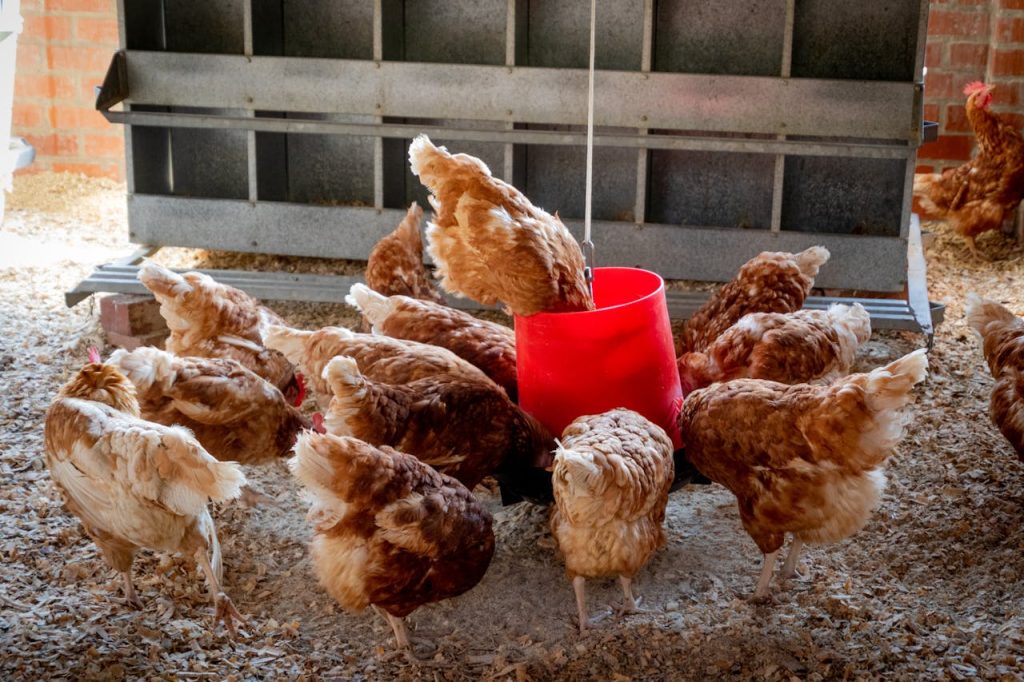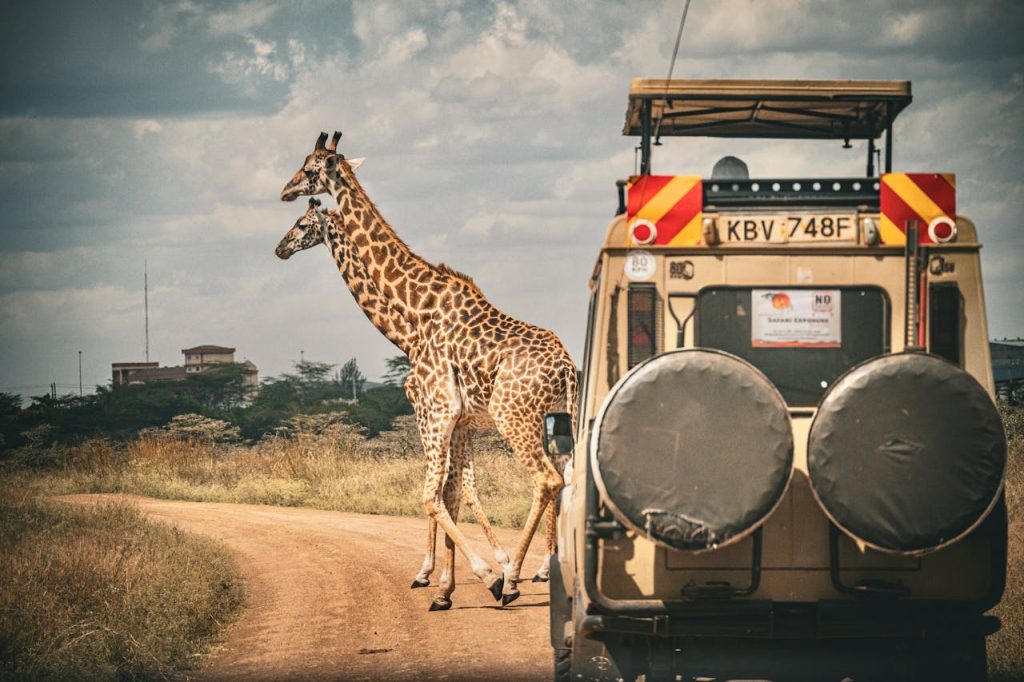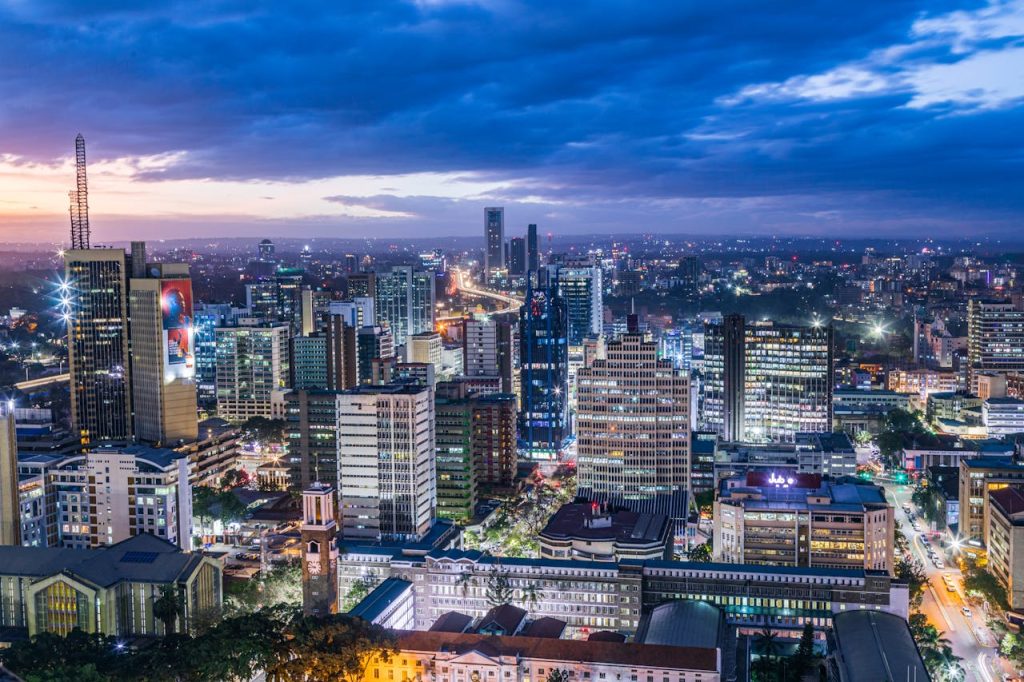Kenya is rapidly emerging as a hub of innovation and economic growth in Africa, driven by a dynamic blend of youthful energy, entrepreneurial spirit, and strategic investments.
The country’s diverse economy is evolving, with several sectors showing remarkable potential and resilience. Kenya is positioning itself as a leader in various high-demand industries, from technological advancements to sustainable development initiatives.
We explore the booming sectors that are shaping Kenya’s future, highlighting the next big opportunities that investors, entrepreneurs, and policymakers should watch closely.
1. Technology and Digital Services
Mobile Payments and Fintech Solutions
Mobile payments have revolutionized the financial landscape in Kenya, largely due to the success of MPESA, a mobile payment solution by Safaricom.
MPESA has become an essential part of daily life, facilitating personal transactions and small business operations. The convenience and accessibility of mobile payments have driven demand for similar fintech solutions that can offer seamless financial services, particularly in rural and underserved areas.
Peer-to-peer lending, digital wallets, and online micro-loans are gaining traction as they provide much-needed financial services to small businesses and individuals. The regulatory environment is also evolving, with the Central Bank of Kenya introducing frameworks to ensure security and consumer protection in digital transactions.
E-commerce
The e-commerce sector in Kenya is booming, driven by increasing internet penetration and a tech-savvy young population.
Thousands of e-commerce websites are capitalizing on this trend, offering a wide range of products like fashion, electronics, furniture, kitchen appliances, organic foods, groceries, etc.

The accelerated adoption of online shopping has made it convenient for households to order goods online and get them delivered to their doorstep. This shift in consumer behavior has led to a surge in demand for robust e-commerce platforms and reliable delivery services.
The expansion of 4G and the upcoming rollout of 5G networks are set to enhance internet accessibility, creating opportunities for entrepreneurs and businesses to tap into a growing market.
2. Renewable Energy
Solar Energy
Solar energy is becoming increasingly popular in Kenya, particularly in rural areas that are off the national grid. With abundant sunlight throughout the year, solar power is a viable and sustainable energy solution.
Companies like M-KOPA Solar have made significant strides in providing affordable solar home systems, allowing households to access electricity for lighting, charging phones, and powering small appliances.
Additionally, international investors and development agencies are showing keen interest in Kenya’s solar energy sector. The combination of favorable government policies, such as tax incentives and subsidies for solar equipment, and the decreasing cost of solar technology, makes it an attractive market.
Wind and Geothermal Energy
Kenya is also harnessing its wind and geothermal resources to diversify its energy mix. The Lake Turkana Wind Power project, one of the largest in Africa, is one example of Kenya’s commitment to harnessing renewable energy.
Kenya is also home to the Olkaria Geothermal Project, which contributes a substantial portion of the national electricity supply. The government’s support through favorable policies and partnerships with international agencies is crucial in exploring and developing these resources.
With increasing concerns about climate change, Kenya’s focus on expanding its renewable energy capacity aligns with global sustainability goals, making it a key player in the renewable energy sector.
3. Agriculture and Agribusiness
Agro-Processing
Kenya’s agriculture sector is the backbone of the economy, employing a significant portion of the population. However, there is a growing recognition of the need to add value to raw agricultural products through agro-processing, which involves turning primary products into finished goods, such as turning tomatoes into paste or milk into cheese.
Agro-processing not only extends the shelf life of agricultural produce but also enhances food security and provides higher income for farmers. Investment in agro-processing also opens up export opportunities, allowing Kenya to compete in international markets with value-added products.
Smart Farming
Smart farming uses technology such as sensors, drones, and data analytics to enhance farming practices, increase productivity, and reduce costs. Precision agriculture allows farmers to monitor soil health, optimize water usage, and manage crops more effectively.

Initiatives like the Digifarm platform by Safaricom are empowering farmers with information and financial services, thus improving their livelihoods. The adoption of smart farming is supported by various stakeholders, including the government, private sector, and development organizations.
As climate change continues to impact agricultural productivity, smart farming offers a sustainable solution to mitigate risks and ensure food security. The integration of ICT in agriculture is also attracting the youth to farming, transforming the sector into a more lucrative and attractive career option.
4. Real Estate and Construction
Affordable Housing
Kenya faces a significant housing deficit, particularly in urban areas. To address this, the government has invested in the Affordable Housing Program to provide decent and affordable housing for low and middle-income families.

The program has created a surge in demand for construction materials, technologies, and expertise to meet the ambitious targets. Developers and investors are seizing this opportunity to participate in large-scale housing projects, contributing to economic growth and urban development.
Additionally, public-private partnerships (PPPs) are playing a crucial role in mobilizing resources and expertise for these projects. As urbanization continues to rise, the demand for affordable and sustainable housing solutions will remain a key driver in the real estate sector.
Urban Development
Urbanization is transforming Kenya’s cities, creating demand for commercial and residential real estate.
Nairobi, Mombasa, Kisumu, and the newest City, Nakuru, are witnessing a boom in construction activities, with new office spaces, shopping malls, and residential complexes springing up.
Developers are also focusing on mixed-use developments that combine residential, commercial, and recreational facilities in one space. This trend not only optimizes land use but also enhances the quality of urban living.
5. Healthcare and Pharmaceuticals
Healthcare Infrastructure
The healthcare sector in Kenya is undergoing significant transformation to meet the needs of a growing population. Investment in healthcare infrastructure, including the construction of new hospitals, clinics, and health centers, is critical.
The government, through initiatives like the Universal Health Coverage (UHC) program, if successful, will ensure that Kenyans have access to quality healthcare services. This has led to increased demand for medical equipment, pharmaceuticals, and healthcare professionals.

Private sector investment in healthcare is also on the rise, with new private hospitals and specialized health facilities being established. Partnerships with international healthcare providers are bringing in advanced medical technologies and expertise.
Telemedicine and mobile health services are gaining popularity, especially in remote areas, improving healthcare accessibility and reducing the burden on traditional healthcare facilities. These developments are necessary to address the healthcare challenges in Kenya, including the high burden of communicable and non-communicable diseases.
Pharmaceuticals
There is a high demand for both generic and specialized medicines to treat a wide range of conditions. Local pharmaceutical manufacturing is being encouraged to reduce dependency on imports and ensure a steady supply of essential drugs.
Additionally, the rise of non-communicable diseases such as diabetes, hypertension, and cancer has increased the need for specialized medications and treatments. The establishment of cancer treatment centers and diabetes care clinics is part of the broader strategy to enhance healthcare delivery.
Research and development in the pharmaceutical sector are also gaining attention, with a focus on developing drugs tailored to the specific needs of the Kenyan population. This growth in the pharmaceutical industry is ideal for improving health outcomes and ensuring a healthier future for all Kenyans.
6. Education and Training
Ed-Tech Solutions
Online learning platforms and digital educational tools are becoming increasingly popular, particularly in the post-COVID period. An example is Kidato School by Sam Gichuru, a Kenyan techpreneur.
These platforms provide access to quality education for students in both urban and rural areas, bridging the gap created by traditional educational limitations. The government and private sector are investing in digital infrastructure and training teachers to effectively use these tools.
Platforms like Eneza Education and eLimu provide curriculum-aligned content and interactive learning experiences. The integration of technology in education is not only enhancing learning outcomes but also preparing students for the digital economy.
Vocational Training
Vocational training is becoming increasingly important in Kenya as the country seeks to address high youth unemployment rates and equip its workforce with practical skills.
Programs offering skills development in areas such as technology, agriculture, and trades are in high demand. Technical and Vocational Education and Training (TVET) institutions are playing a crucial role in this regard, providing hands-on training and certifications that are directly aligned with market needs.
The government’s support through initiatives like the Youth Empowerment Program and partnerships with private sector companies is enhancing the capacity of vocational training institutions. By focusing on practical and industry-relevant skills, these programs are helping young people secure employment and contribute to the economy.
Additionally, vocational training is encouraging entrepreneurship, as individuals gain the skills needed to start and run their businesses. This focus on skill development is essential for driving economic growth and reducing poverty in Kenya.
7. Transport and Logistics
Public Transportation
With rapid urbanization, the need for efficient and reliable public transportation systems in Kenya is more pressing than ever. Major cities like Nairobi, Thika, and Nakuru are grappling with traffic congestion and inadequate transport infrastructure.
To address these challenges, the government is investing in modern public transportation solutions, including the Nairobi Commuter Rail Service and the development of Bus Rapid Transit (BRT) systems. These initiatives aim to provide safe, affordable, and efficient transport options for the growing urban population.
Furthermore, the introduction of digital ticketing systems and real-time tracking apps is enhancing the user experience and efficiency of public transport.
Private sector players are also contributing by introducing ride-sharing services and electric buses, which are environmentally friendly. The expansion and modernization of public transportation infrastructure are essential for improving urban mobility, reducing traffic congestion, and lowering pollution levels.
Logistics and Delivery Services
The rise of e-commerce in Kenya has significantly increased the demand for robust logistics and delivery networks.
Consumers now expect fast and reliable delivery services, driving the growth of logistics companies. Innovations such as drone deliveries and automated sorting centers are being explored to enhance efficiency and reduce delivery times.
Companies like Speedaf Kenya and Glovo are expanding their services to meet the growing demand for last-mile delivery solutions.
The development of infrastructure such as roads, bridges, and ports is essential to support the logistics sector. The Lamu Port-South Sudan-Ethiopia-Transport (LAPSSET) Corridor project is a key initiative aimed at improving regional connectivity and facilitating trade.
Efficient logistics also contribute to the growth of other sectors, including agriculture, manufacturing, and retail.
8. Tourism and Hospitality
Domestic Tourism
The focus on promoting domestic tourism in Kenya is growing as the country seeks to diversify its tourism sector.
The government and private sector are encouraging Kenyans to explore their own country. Initiatives such as discounted travel packages, marketing campaigns, and improved tourist facilities are aimed at boosting domestic tourism.

Local companies like Bountiful Safaris, Expeditions Masai Safari, and Bonfire Adventures have benefited from the growing domestic tourism as Kenyas explore various tourist sites.
Kenya’s rich cultural heritage, national parks, and scenic landscapes offer a wide range of attractions for local tourists. The development of infrastructure such as roads and accommodation facilities is crucial to support this growth.
Ecotourism
Sustainable and eco-friendly tourism options are becoming increasingly popular in Kenya. Ecotourism focuses on responsible travel to natural areas, conserving the environment, and improving the well-being of local communities.
Kenya, with its diverse wildlife and natural beauty, is well-positioned to capitalize on this trend. Eco-lodges, community-based tourism initiatives, and conservation projects are attracting eco-conscious travelers.
Partnerships with international conservation organizations are also helping to promote Kenya as a leading ecotourism destination.
9. Financial Services
Insurance
There is a rising demand for various insurance products, including health, life, and agricultural insurance.
The government’s push for Universal Health Coverage (UHC) is driving the need for health insurance, ensuring that all Kenyans have access to affordable and quality healthcare services.
Insurance companies like Britan, Pacis, and Jubilee have introduced innovative products tailored to the needs of different market segments, including low-income households.
Additionally, agricultural insurance is gaining prominence as farmers seek to protect their investments from risks such as drought, pests, and diseases. Integrating technology in the insurance sector, such as mobile-based insurance platforms, is enhancing accessibility and convenience for customers.
Microfinance
Microfinance institutions (MFIs) play a vital role in providing financial services to those who are underserved by traditional banks.
MFIs offer loans, savings accounts, and other financial products to small-scale entrepreneurs, helping them to grow their businesses and improve their livelihoods. Plus, digital microfinance solutions are emerging, leveraging mobile technology to reach a wider audience.
These platforms offer quick and easy access to loans, reducing the barriers faced by small businesses in accessing credit.
10. Consumer Goods
Fast-Moving Consumer Goods (FMCG)
The demand for fast-moving consumer goods (FMCG) in Kenya continues to grow, driven by an expanding middle class and changing consumer lifestyles.
FMCG products, including food, beverages, personal care items, and household goods, are essential for daily life. Companies in this sector are continuously innovating to meet the evolving preferences of consumers, such as healthier food options and eco-friendly packaging.
The growth of modern retail formats, including supermarkets and convenience stores, is also boosting the FMCG sector. These retail outlets offer a wide range of products under one roof, providing convenience to shoppers.
The increasing use of e-commerce platforms for purchasing FMCG products is another trend shaping the market. By tapping into these opportunities, FMCG companies can cater to the diverse needs of Kenyan consumers and drive business growth.
Luxury Goods
As Kenya’s middle and upper classes grow, there is a rising demand for luxury goods such as high-end electronics, fashion, and automobiles. This shift is driven by increasing disposable incomes and a desire for premium products that reflect status and lifestyle.
International luxury brands like Beyonce’s Fenty Beauty are entering the Kenyan market, capitalizing on this growing demand. Shopping malls and exclusive boutiques cater to affluent consumers seeking high-quality and unique products.
The luxury goods market in Kenya also benefits from the rise of experiential luxury, where consumers value unique experiences over material possessions.
High-end travel, fine dining, and bespoke services are becoming popular among wealthy Kenyans. By understanding and catering to the preferences of this affluent segment, businesses can tap into a lucrative market and enhance their brand presence in Kenya.


